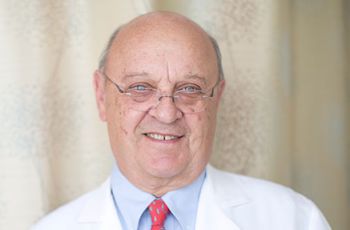News Archive
Samuel Potolicchio, M.D., professor of neurology, commented to BBC World Service on the use of brain-scanning technology to determine if someone is lying. The story was covered by WBEZ-FM in Chicago.
One out of every 88 children in the United States will develop autism sometime during the first three years of life, according to the Centers for Disease Control and Prevention.
Jesse Pines, M.D., associate professor of emergency medicine, was interviewed by Bloomberg News about the costs of new “multi-specialty centers” being built in the Washington area and across the country.
Rachel Brem, M.D., professor of radiology, spoke to WINS-AM in New York about the FDA's approval of the Automated Breast Ultrasound System (ABUS), which will help detect breast cancer in women with dense breasts. Brem also spoke on her research of ABUS during a clinical trial.
In August, The George Washington University (GW) School of Medicine and Health Sciences (SMHS) received three federally funded research project grants (R01s) and one federally funded cooperative agreement research project grant (U01).
Daniel Ein, M.D., clinical professor of medicine, comments on a story in the Washington Post on a supposed increase in asthma and allergies during the fall season.
Students, faculty, and alumni from SMHS, the School of Public Health and Health Services, and the School of Nursing saw more than 1,100 patients and treated everything from malnutrition and respiratory issues in children to adults with diabetes, arthritis, and hypertension, during a medical…
The 1960s was an era of social change, a time when a number of medical corpsmen were returning home from the Vietnam War searching for a way to re-enter the medical practice arena.
Howard J. Bennett, M.D., clinical professor of pediatrics, contributed an article to the Huffington Post advising parents about fevers in children.
Arjun Joshi, M.D., assistant professor of surgery, is an expert in advances in the treatment of oral diseases and can speak on inquiries related to World Oral Health Day.







